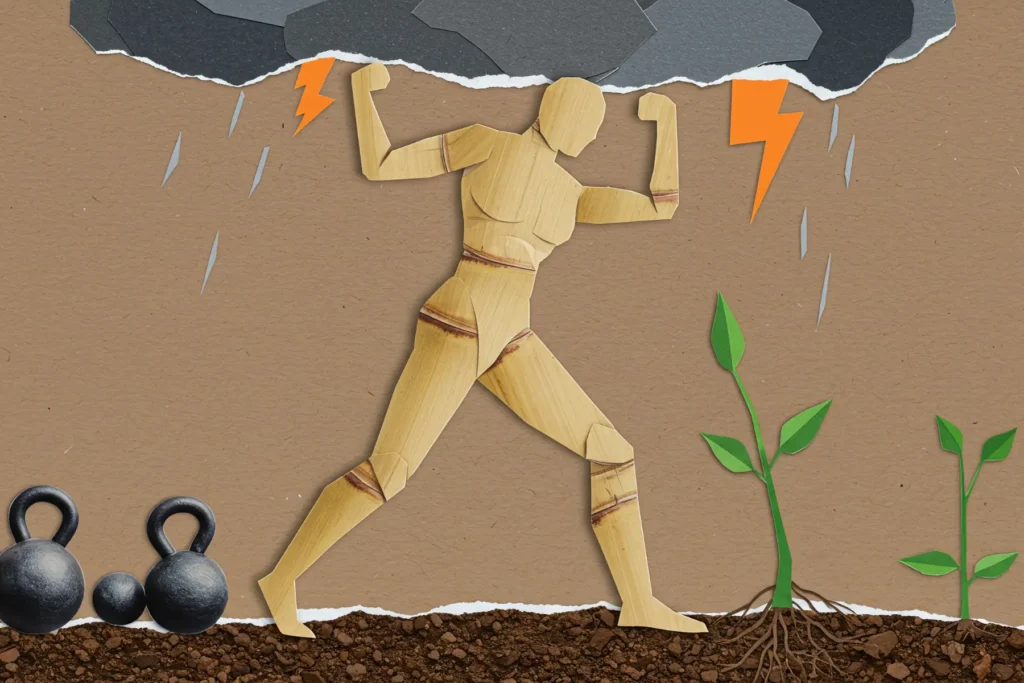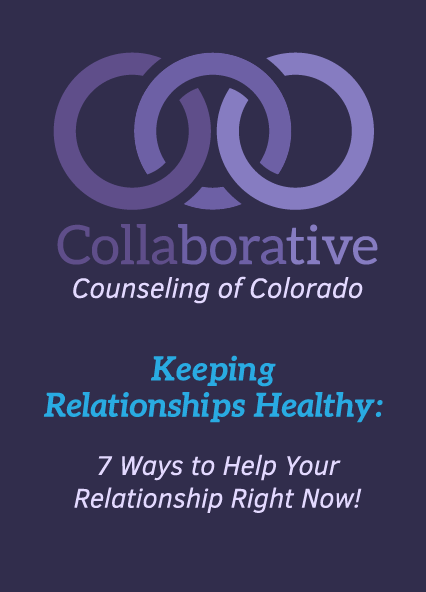“Depression is being colorblind and constantly told how colorful the world is.”
— Atticus

Depression – so much more than “Sadness”
Depression is more than sadness—it’s a heavy weight that can affect every part of life. Many people describe it as feeling numb, disconnected, or stuck in a fog they can’t escape. Depression is one of the most common mental health struggles, yet for those who live with it, it can feel anything but common. It is heavy, isolating, and often misunderstood.
Depression is a complex and multifaceted experience that affects millions of people around the world. It’s a condition that can be triggered by a wide range of factors, from genetic predisposition and neurochemical imbalances to life events such as trauma, loss, and major changes. Depression is not a weakness, and it’s not something that can be cured by simply “snapping out of it.” Rather, it’s a legitimate and treatable mental health condition that deserves compassion, understanding, and support.

When we talk about depression, we often focus on the negative symptoms such as low mood, lack of energy, and difficulty concentrating. However, it’s important to remember that depression can also have positive aspects. For example, it can be a signal that something in our lives is not working and needs attention, or it can be an opportunity for growth, learning, and self-discovery. As Brené Brown famously said, “Vulnerability is the birthplace of innovation, creativity, and change.”
At Collaborative Counseling of Colorado, we want you to know this truth: depression is not weakness or a character flaw. It’s a legitimate and treatable condition that requires care, compassion, and the right support.
Whether you’re experiencing persistent sadness, low energy, loss of interest in activities, or difficulty maintaining relationships, depression can make everyday tasks feel overwhelming. Our therapists specialize in helping clients explore the roots of depression and create personalized treatment plans that foster healing, resilience, and growth.
What Depression Really Is
Depression is far more complex than simply “feeling sad.” It is a multifaceted mental health condition that can affect every area of life — your energy levels, your relationships, your ability to focus at work, and even your sense of purpose. For many people, depression feels like being weighed down by an invisible burden they cannot shake.
Depression affects millions of people across the United States, including many right here in Denver. It can be triggered by a variety of factors: trauma, grief, life transitions, biological changes, or even long-term stress. While the causes differ from person to person, the impact is often the same: depression drains energy, affects relationships, and clouds your ability to see a hopeful future.
There is no single cause of depression. It may stem from:
- Environmental stressors like financial strain, job burnout, or relationship struggles
- Life events, including trauma, grief, or major transitions
- Biological factors such as genetics and brain chemistry
- A combination of all of the above
Understanding this helps break the myth that depression is simply about “thinking positively” or “snapping out of it.” It is a real mental health condition that requires real, compassionate treatment.
At Collaborative Counseling of Colorado, we view depression not as a personal failure but as a signal that something deeper in your life deserves attention. Sometimes, depression highlights the need for rest, healing, or change. By addressing these underlying concerns in therapy, you can begin to shift from simply surviving to truly living.
The Role of Self-Compassion in Healing

One of the most powerful tools in managing depression is self-compassion. When depression strikes, it’s easy to fall into cycles of self-criticism or guilt. You may tell yourself to “just snap out of it” or compare yourself to others, which only deepens feelings of shame.
Self-compassion offers a different path. It means speaking to yourself with kindness, recognizing your struggles without judgment, and understanding that you are not alone. Just as you would comfort a friend going through a difficult time, you can learn to extend that same gentleness and care to yourself.
Practicing self-compassion doesn’t erase depression overnight, but it helps soften the burden. It creates a foundation of support within yourself, giving you the strength to take small, meaningful steps toward healing. In therapy, we help clients develop self-compassion through mindfulness practices, reframing negative self-talk, and building healthier coping strategies.
Common Symptoms of Depression
Everyone experiences depression differently, but some of the most common symptoms include:
- Persistent sadness or emptiness or persistent irritability and frustration
- Loss of interest in hobbies, relationships, or work
- Changes in appetite or sleep patterns
- Fatigue or lack of motivation
- Difficulty concentrating or making decisions
- Feelings of guilt, shame, or worthlessness
- Withdrawal from friends, family, or social activities
Sometimes, depression can also appear in less obvious ways. For men, it may show up as irritability or emotional numbness. For others, it may feel like constant restlessness, an inability to feel joy, or a sense that life is happening in black and white.
Whatever form it takes, your experience is valid, and help is available.
If these symptoms sound familiar, know that you are not alone. Many people in Denver and beyond struggle with depression, and effective help is within arm’s reach.
Depression as a Signal for Change
Though painful, depression can sometimes be a signal — a message from the body and mind that something needs attention. It may be telling you to slow down, to grieve, to confront a past wound, or to shift the direction of your life. While this doesn’t make the experience easier, it reframes depression as a call for care rather than a personal failing.
How Therapy Helps with Depression
Professional counseling offers a safe space to explore your emotions, uncover the underlying causes of depression, and develop healthier ways of coping. At Collaborative Counseling of Colorado, we understand that no two people experience depression in the exact same way. That’s why our therapists use a personalized, feedback-informed approach to treatment. This ensures that your counseling sessions are tailored to your goals, your life, and your healing journey.
Our therapists use evidence-based depression treatment approaches such as:

- Internal Family Systems (IFS) – helping clients explore and heal parts of themselves that carry pain, self-criticism, or protective patterns.
- Emotionally Focused Therapy (EFT) – strengthening emotional bonds and secure attachment in relationships as a pathway to resilience.
- Eye Movement Desensitization & Reprocessing (EMDR) – reducing the intensity of past trauma and stress responses that can underlie depression.
- Mindfulness & Somatic Practices – cultivating body awareness, presence, and nervous system regulation to shift out of depressive states.
- Lifestyle integration: Practical steps to improve sleep, nutrition, and exercise habits.
Our goal is not only to relieve the immediate symptoms of depression but also to help you build long-term tools for growth and emotional well-being. We walk alongside you, adjusting the approach as needed, so you see progress and feel empowered in your healing.
The Importance of Building Support and Connection
Depression often convinces people to withdraw from loved ones and pushes them into isolation. Unfortunately, this isolation makes symptoms worse. Human beings are wired for connection, and connection is a critical part of healing. That’s why healthy relationships are a vital buffer against depression. Through individual counseling, we help clients build stronger relationships with themselves and with others. For many, this includes improving communication, addressing relationship stress, and finding community in healthy and supportive ways.
That’s why at Collaborative Counseling of Colorado, we emphasize building supportive connections. When you combine self-compassion with genuine connection, you create a powerful pathway to healing. In therapy, you’ll have a safe and nonjudgmental space to share what you’re going through. Beyond therapy, we encourage you to explore support groups, deepen trusted relationships, or find new communities that bring meaning and belonging.
You Don’t Have to Face Depression Alone
Depression may convince you that you’re alone or that things will never change. But recovery is possible. Many people who once felt hopeless now lead fulfilling, joyful lives — not because their depression vanished overnight, but because they found the support, tools, and compassion needed to heal.
At Collaborative Counseling of Colorado, we are committed to walking with you on the journey toward healing. Our therapists are compassionate, skilled, and committed to creating a safe space where you can be fully yourself.
Begin Your Healing Journey Today
If you are struggling with depression, reaching out for help may feel like the hardest step — but it is also the most important. At Collaborative Counseling of Colorado, you don’t have to pretend you’re okay. You don’t have to go through this alone.
Let us walk with you toward healing, hope, and renewed strength. Together, we can create a path toward a life that feels meaningful, connected, and whole again.
“We don’t have to do all of it alone. We were never meant to.”
— Brené Brown
